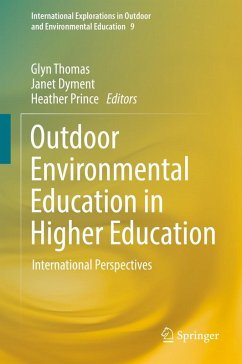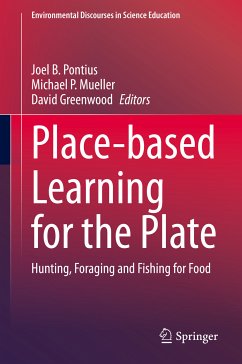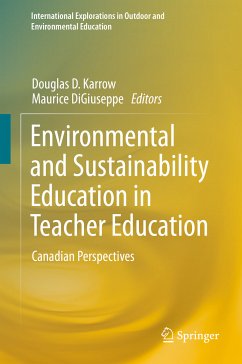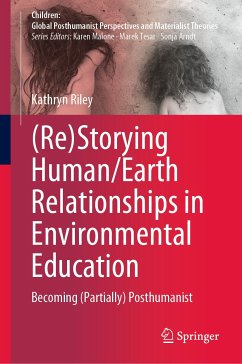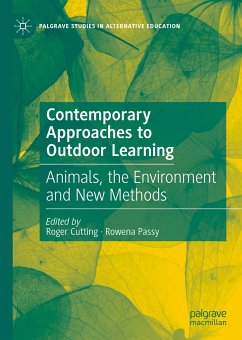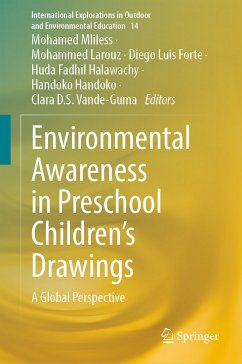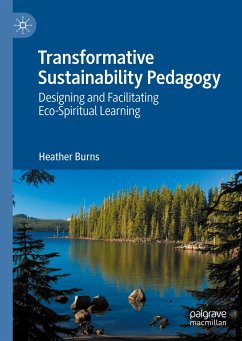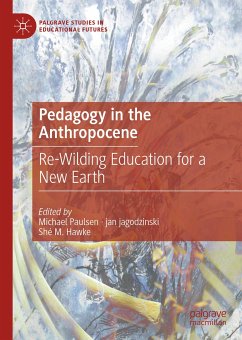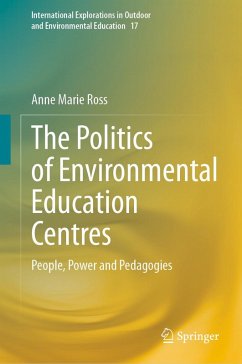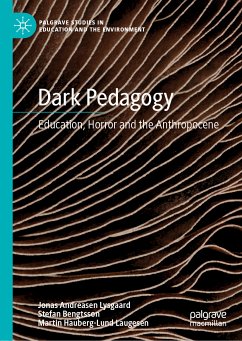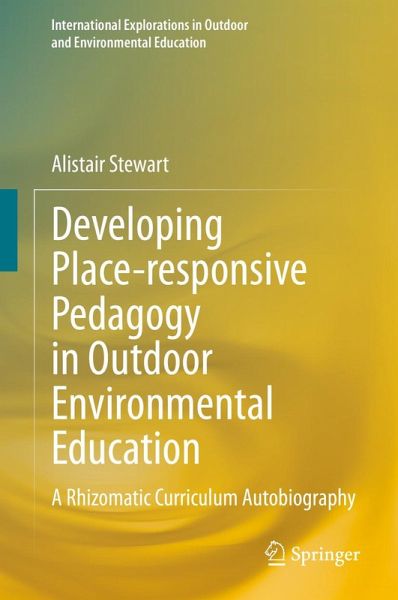
Developing Place-responsive Pedagogy in Outdoor Environmental Education (eBook, PDF)
A Rhizomatic Curriculum Autobiography
Versandkostenfrei!
Sofort per Download lieferbar
72,95 €
inkl. MwSt.
Weitere Ausgaben:

PAYBACK Punkte
36 °P sammeln!
This book is a rhizomatic curriculum autobiography that charts the author's efforts to develop and promote Australian outdoor environmental education practices that are inclusive of, and responsive to, the places in which they are performed. Joining philosophical concepts created by Gilles Deleuze and Felix Guattari with William Pinar's autobiographical method for curriculum inquiry, the author (re)considers the interrelated concepts, contexts and complex conversations with colleagues, students and others that have shaped his approach to curriculum, pedagogy and research for fifteen years or m...
This book is a rhizomatic curriculum autobiography that charts the author's efforts to develop and promote Australian outdoor environmental education practices that are inclusive of, and responsive to, the places in which they are performed. Joining philosophical concepts created by Gilles Deleuze and Felix Guattari with William Pinar's autobiographical method for curriculum inquiry, the author (re)considers the interrelated concepts, contexts and complex conversations with colleagues, students and others that have shaped his approach to curriculum, pedagogy and research for fifteen years or more. Emphasising the complexity of developing curricula and pedagogies that engage, in a respectful and generative way, with the natural and cultural history of the Australian continent, the author explicates and enacts his attempts to think differently about the cultural, curricular and pedagogical understandings that inform the practices of Australian outdoor environmental educators.
Outdoor environmental education in Australia has historically been influenced by imported universalist ideas, particularly from the USA and the UK. However, during the last two decades a growing number of researchers in this field have challenged the applicability of such taken-for-granted approaches and advocated the development of curricula and pedagogies informed by the unique bio-geographical and cultural histories of the locations in which educational experiences take place. As this book demonstrates, Alistair Stewart is prominent among the vanguard of Australian outdoor environmental educators who have led such advocacy by combining practical experience with theoretical rigour.
Outdoor environmental education in Australia has historically been influenced by imported universalist ideas, particularly from the USA and the UK. However, during the last two decades a growing number of researchers in this field have challenged the applicability of such taken-for-granted approaches and advocated the development of curricula and pedagogies informed by the unique bio-geographical and cultural histories of the locations in which educational experiences take place. As this book demonstrates, Alistair Stewart is prominent among the vanguard of Australian outdoor environmental educators who have led such advocacy by combining practical experience with theoretical rigour.
Dieser Download kann aus rechtlichen Gründen nur mit Rechnungsadresse in A, B, BG, CY, CZ, D, DK, EW, E, FIN, F, GR, HR, H, IRL, I, LT, L, LR, M, NL, PL, P, R, S, SLO, SK ausgeliefert werden.



